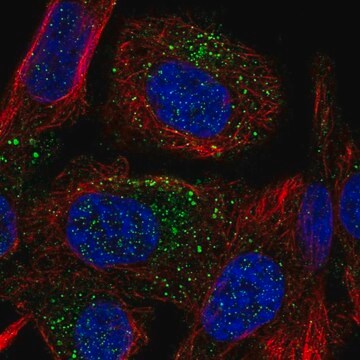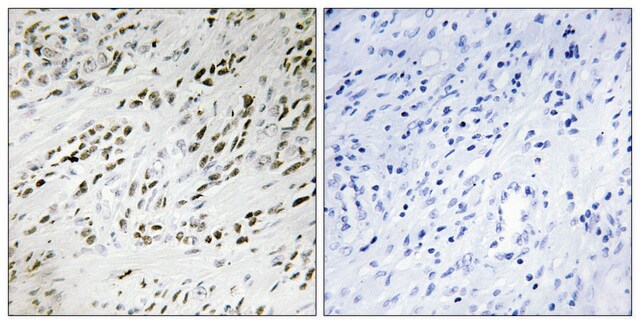MABN473
Anti-TMEM106B Antibody, clone TME-N 6F2
clone TME-N 6F2, from rat
Synonym(s):
Transmembrane protein 106B, TMEM106B
About This Item
Recommended Products
biological source
rat
Quality Level
antibody form
purified immunoglobulin
antibody product type
primary antibodies
clone
TME-N 6F2, monoclonal
species reactivity
rat, human
technique(s)
immunofluorescence: suitable
western blot: suitable
NCBI accession no.
UniProt accession no.
shipped in
wet ice
target post-translational modification
unmodified
Gene Information
human ... TMEM106B(54664)
General description
Specificity
Immunogen
Application
Neuroscience
Neurodegenerative Diseases
Quality
Western Blot Analysis: 1 µg/mL of this antibody detected TMEM106B in 10 µg of human cortex tissue lysate.
Target description
Physical form
Storage and Stability
Analysis Note
Human cortex tissue lysate
Other Notes
Disclaimer
Not finding the right product?
Try our Product Selector Tool.
Storage Class Code
12 - Non Combustible Liquids
WGK
WGK 1
Flash Point(F)
Not applicable
Flash Point(C)
Not applicable
Certificates of Analysis (COA)
Search for Certificates of Analysis (COA) by entering the products Lot/Batch Number. Lot and Batch Numbers can be found on a product’s label following the words ‘Lot’ or ‘Batch’.
Already Own This Product?
Find documentation for the products that you have recently purchased in the Document Library.
Our team of scientists has experience in all areas of research including Life Science, Material Science, Chemical Synthesis, Chromatography, Analytical and many others.
Contact Technical Service








